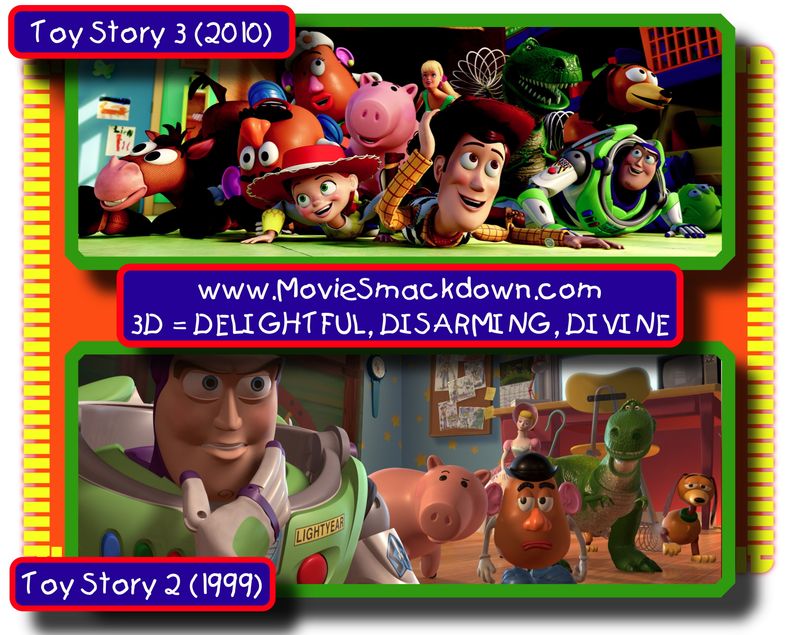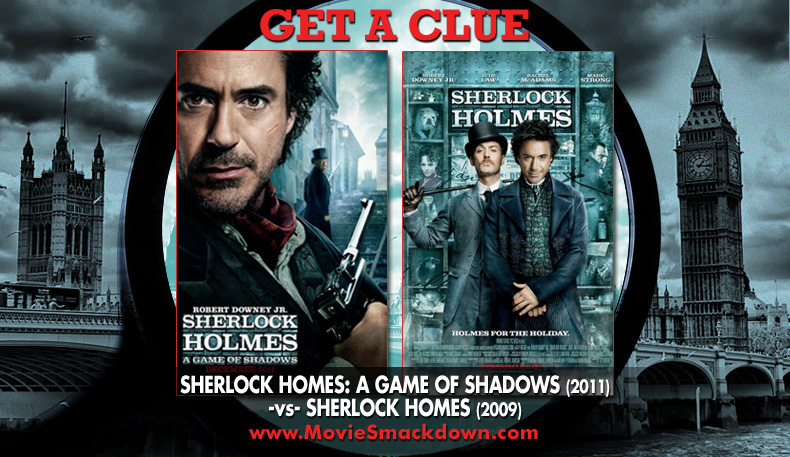 The Smackdown
The Smackdown
James Bond has a long franchise of adaptations, interpretations, and revitalizations spanning nearly fifty years. With such a lineage, it’s only natural that there’ll be some intra-family rivalry.
Today we put up two highly-touted revampings designed to help Bond fans overcome two of the most popular actors to depict James Bond: Sean Connery and Pierce Brosnan. On Her Majesty’s Secret Service attempted to co-opt the loyalty of Bond fans by paying respect to Ian Fleming’s original stories beyond just their titles, and of course sliding in newcomer George Lazenby as Bond…James Bond. Casino Royale did much the same, using an orthodox choice in Daniel Craig to return to source material while retooling Bond for Jason Bourne-style audiences.
While Daniel Craig’s Bond is certainly meaner and tougher, can this blond-haired Bond match up against the man better known as the post-Connery Bond? Which one makes good on their promise to decrypt 007 and break territory ignored by previous Bond formulas?
[singlepic id=127 w=320 h=240 float=right]
The Challenger
Fans felt there’d be no dying another day for the Bond franchise after Pierce Brosnan’s last Bond outing in the overwrought and cheesy Die Another Day. Faced with serious spy thrillers like Alias and The Bourne Identity, producers scrambled back to Ian Fleming and his first Bond novel, Casino Royale.
Daniel Craig, “the new guy,” sparked hell among fans for his demeanor, blond-hair, and overall scruffy appearance. Introducing the legendary spy at the beginning of his career, Casino Royale pits a cocky and inexperienced Bond against the poker-playing banker of the world’s terrorists, Le Chiffre. Although adding entire sequences and ideas absent in Fleming’s novel, the film stays loyal to the novel in that Bond learns a harsh lesson from too easily trusting, and loving, a beautiful colleague in this high-stakes thriller.
[singlepic id=23 w=320 h=240 float=right]
The Defending Champion
George Lazenby is best known for his role as “the One after Sean Connery.” Following Connery’s departure from the Bond franchise, producers selected Australian George Lazenby to take the reins of what had become an international icon, James Bond.
To compensate for Connery’s absence, the producers stopped their practice of borrowing scenes and villains from Fleming’s moodier, less-spectacular storylines and transposing them into action-packed blockbusters. Instead, On Her Majesty’s Secret Service (OHMSS) caters to nearly every aspect of Fleming’s 11th novel, following a battle-weary Bond who, while trying to stop a criminal organization from poisoning the world’s food supply, finds a way out of MI-6 in his love for a Mafia head’s only daughter.
Though Lazenby always seems to be getting used to Connery’s shoes, OHMSS delivers an unusually introspective Bond who, while still offering up cliche and clever quips, is more involved in his love for the Bond girl than any fate of the world — especially by the film’s surprisingly tragic end.
The Scorecard
Let’s be clear: Daniel Craig is a more engaging Bond than George Lazenby. A further departure than any previous Bond, Craig’s a meaner, stronger, and angrier spy who actually seems more concerned with stopping the terrorists than fixing his Windsor knot. He’s a man you’d want in your corner, double-elbowing embassy guards and knee-kicking bombers. While nocturnal single-foot skiing is admirable, Lazenby seems more charm than harm like traditional Bonds, but still manages to convey a more ambivalent, emotionally-engaging Bond than most (if you like that sort of thing). Craig’s Bond is at no lack of emotion, full on crying at one point and giving troubled stares into the mirror which emote his angst over killing.
But the character development in these two films is vastly different. In both, the Bond girl is used beyond just looks and sex; they serve to play against Bond’s emotional development, providing a possible alternative to the dehumanizing job us fans simply expect Bond will always do. However, Casino Royale‘s Vesper Lynd arrives too late to mesh with Bond’s character arc and Bond’s own desire to be free of his job seems contrived for the love story, not from it. Bond has eagerly pushed his way into 007 status, successfully hindered an international terrorist network, ignited a change of events that lead to the fall of a terrorist banker, and succeeded in uncovering a major terrorist attack. Hardly the reasons to quit one’s job.
OHMSS‘s red-headed Tracy de Vicenzo holds our attention from her pre-credit suicide attempt all the way through her desire to escape her father’s criminal affiliations through Bond — just as Bond is beginning to desire freedom from MI-6’s similar shady dealings. She complements Bond’s mission as he tracks down Blofeld at an elegant ski resort. Involved with Bond during a chase from skis to car to avalanche, Tracy’s presence seems to contrast the stark cruelty of Bond’s mission and enhances suspense — whereas Vesper Lynd seems more a nuisance to Bond’s attempts to bankrupt Le Chiffre.
In the end, where Casino Royale‘s climax attempts to tug at our heart strings despite having ruined the integrity of the Bond girl, OHMSS‘s provides a loving and logical ending to Bond and Tracy’s affair before cruelly robbing them of their possible future.
It is also worth noting that Casino Royale‘s terrorist scheme falls in a sort of ambiguous threat area; perhaps this was an intentional strategy designed to differ the movie from previous Bond films. But OHMSS has the ultimate Bond villain, Blofeld, using biological germs to poison food supplies, a scheme that is all too relevant presently and underscores a sense of underplayed realism to Bond’s mission.
At its start, Casino Royale seems determined to break the Bond formula of massive action sequences and bombastic villians. But by the time the Airbus starts blowing away chasing police cars and Venetian buildings begin crumbling into canals, we get the feeling that we may have seen this before … and it wasn’t while reading any of Ian Fleming’s novel.
The Decision
This hand goes to On Her Majesty’s Secret Service for its efforts to place an ambivalent Bond into a realistic, toned-down situation while tempting him with tragic love. Yes, Casino Royale challenges Bond’s faith in his career, but it’s jumbled and broken along the tardy introduction and underdeveloped appearances of Vesper. In the end, when both these girls meet similar fates, only one film seems to have invested enough emotion and originality to make its gambles pay off — and that’s On Her Majesty’s Secret Service.




I honestly do not see how Vesper’s arrival into CASINO ROYALE’s first hour would have served the story. I’m sorry, but I do not think it would be possible to make it necessary.
And even Tracy disappeared for a good portion of OHMSS. But since she appeared in the story at the beginning, OHMSS is the better movie? I’m sorry, but . . . I just don’t buy your argument. It does not make any sense to me.
By the way, both OHMSS and CASINO ROYALE happen to be my two favorite Bond films.
It is also worth noting that Casino Royale’s terrorist scheme falls in a sort of ambiguous threat area; it almost seems as if you truly want to misread the movie. CASINO ROYALE was not about stopping Le Chiffre’s terrorist threat against that airplane in Miami. It was about MI-6 investigating an organization funding terrorist groups. Bond’s main mission throughout the movie was to find and capture someone who could provide the information needed. He failed with Mollaka in Madagascar. He failed with Le Chiffre in Montenegro. He finally succeeded with Mr. White, thanks to the information left by Vesper.
Beau… You’ve surprised me again. I really did love “Casino Royale” and Daniel Craig, but you make some excellent points. Somehow, I think I missed “On Her Majesty’s Secret Service” which now, like “The Fountain” before it, will have to be addressed in my film education. I take it from the photo that Telly’s “Blofeld” is the inspiration for “Dr. Evil” and this lacey Bond is the inspiration for “Austin Powers”?